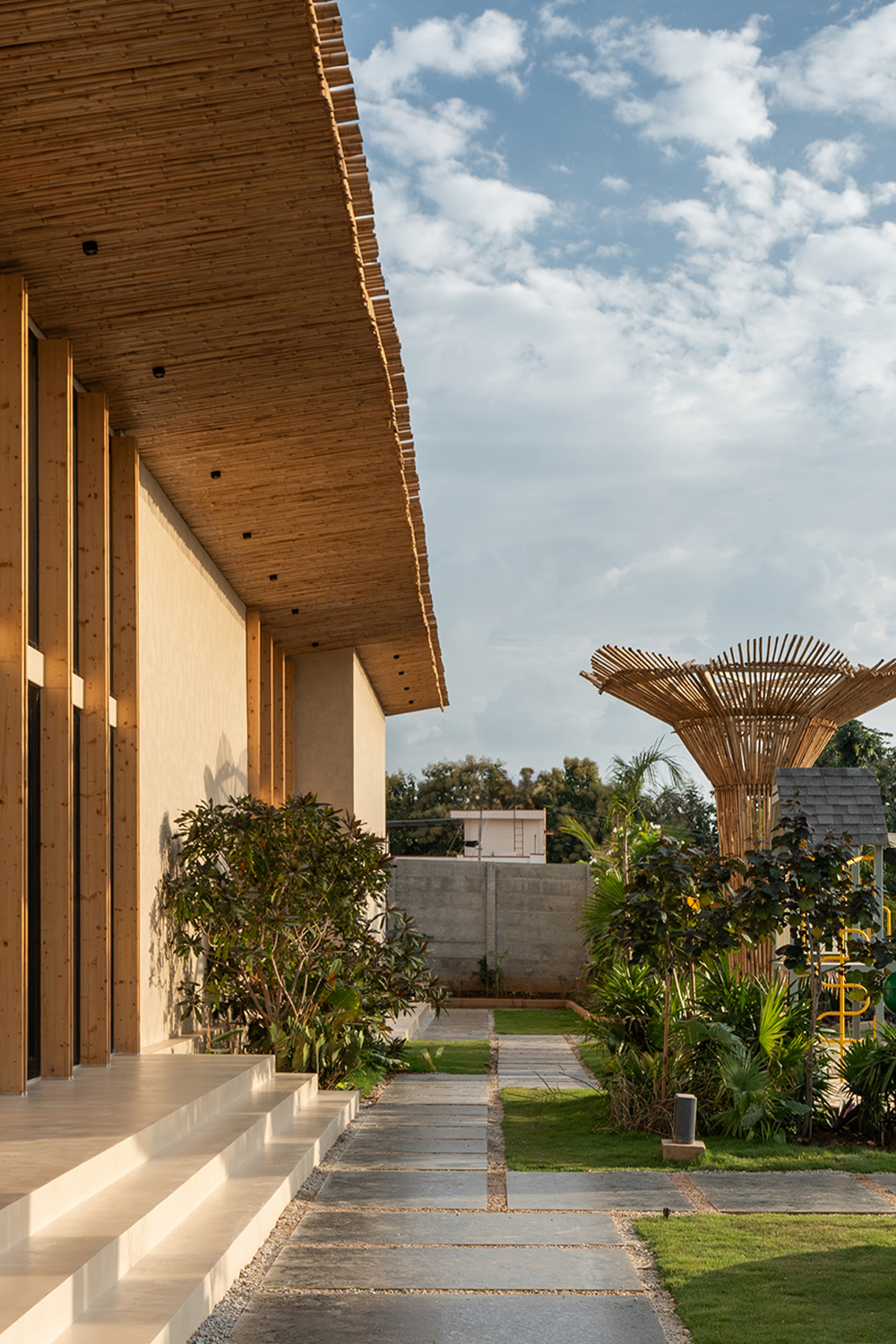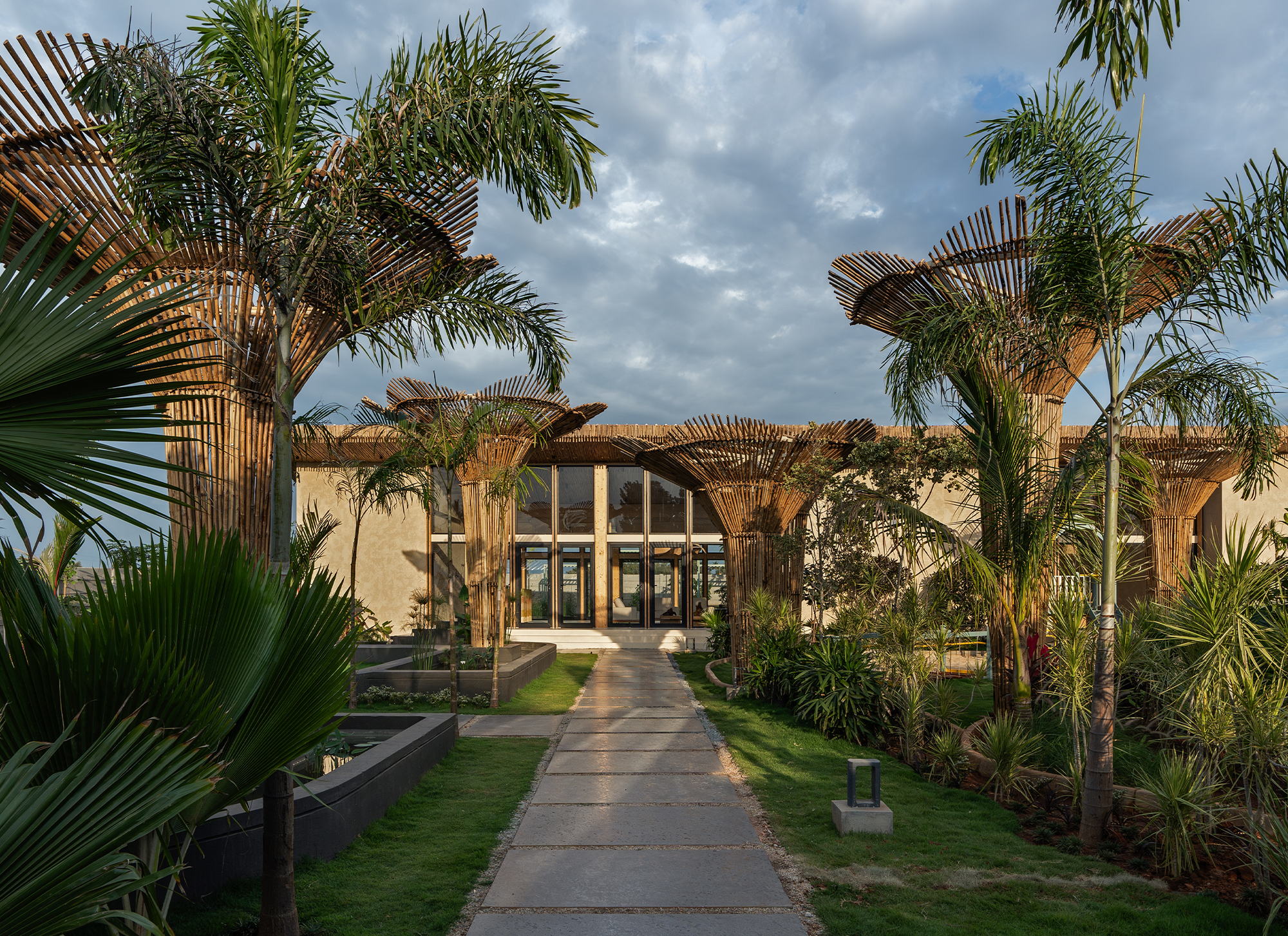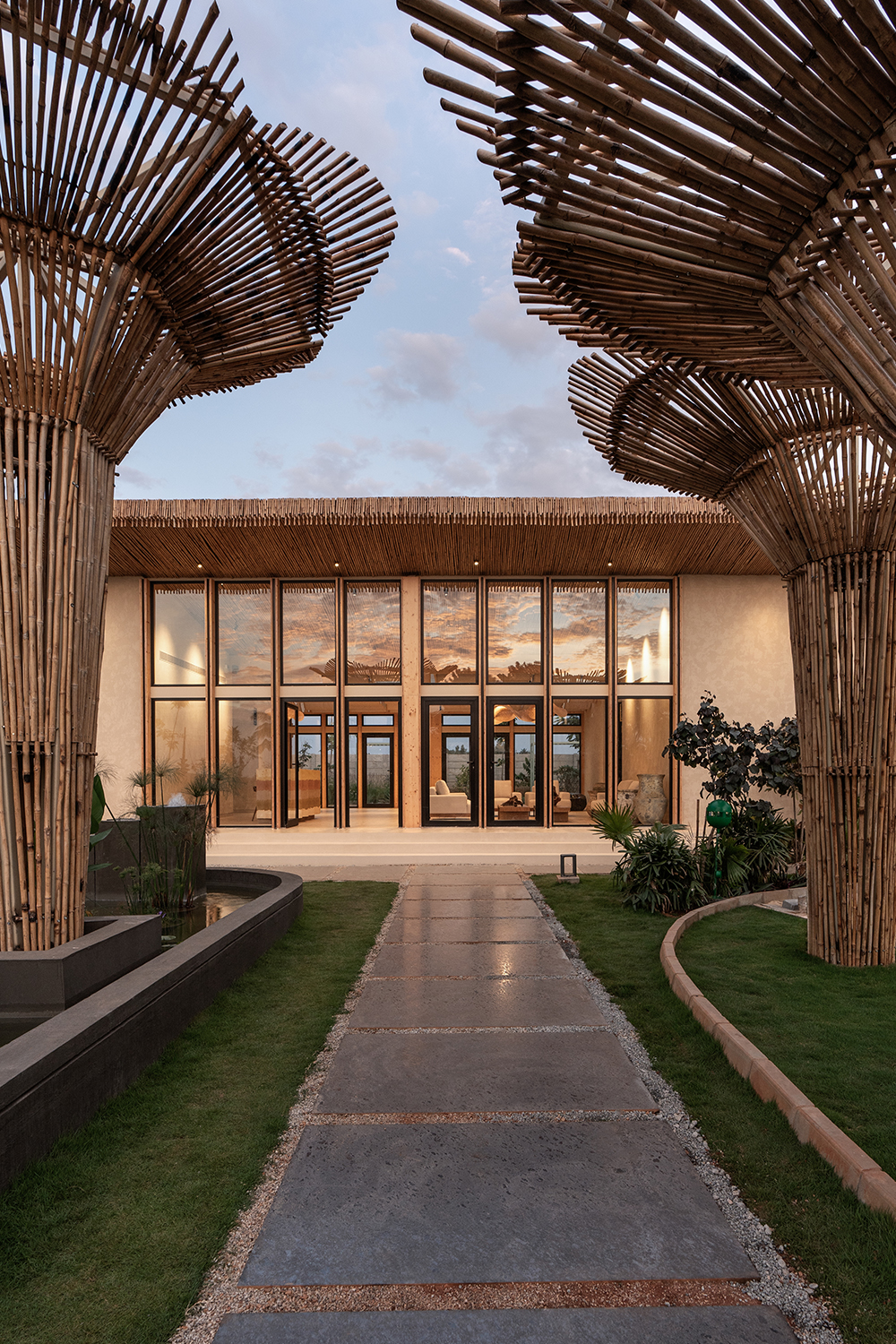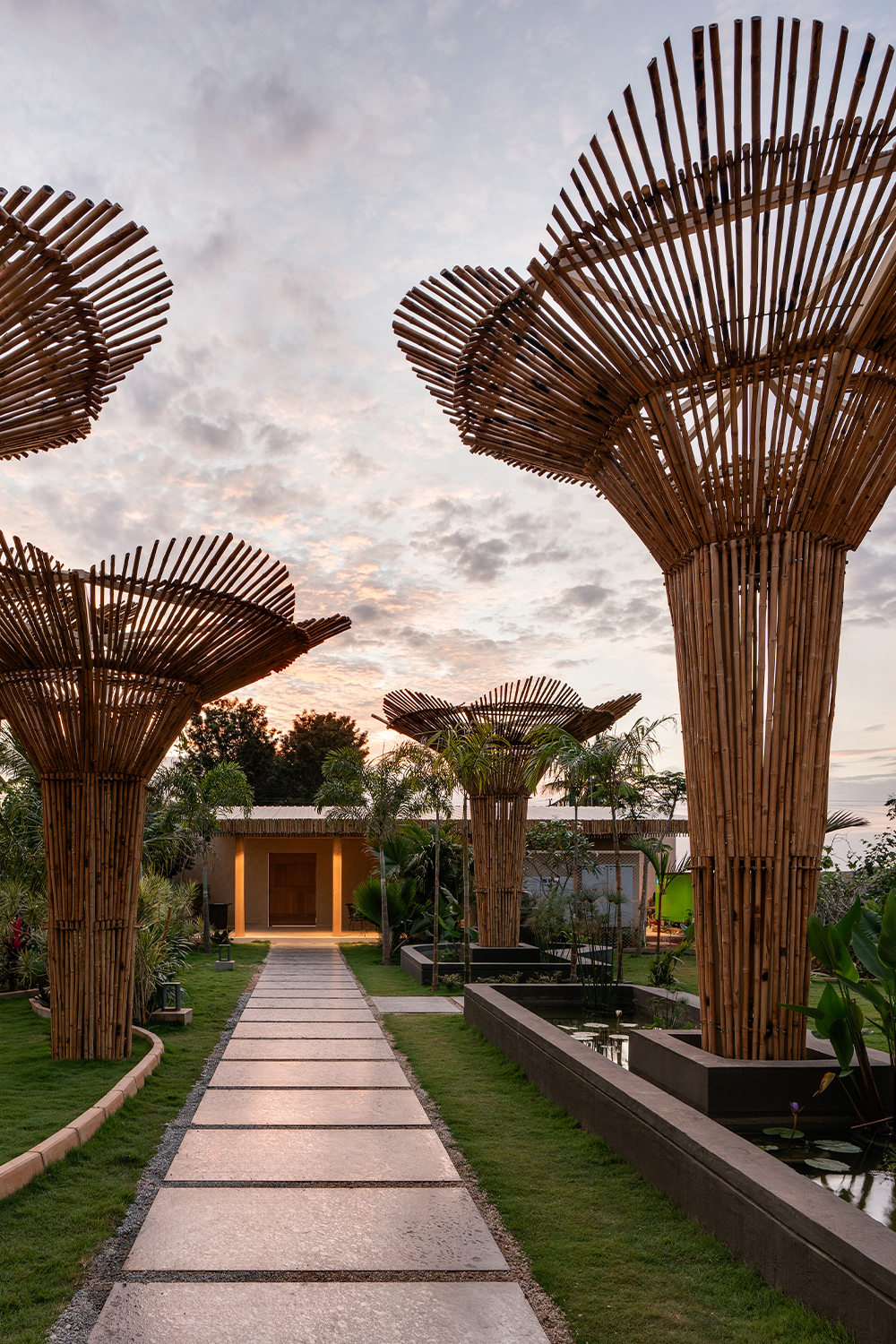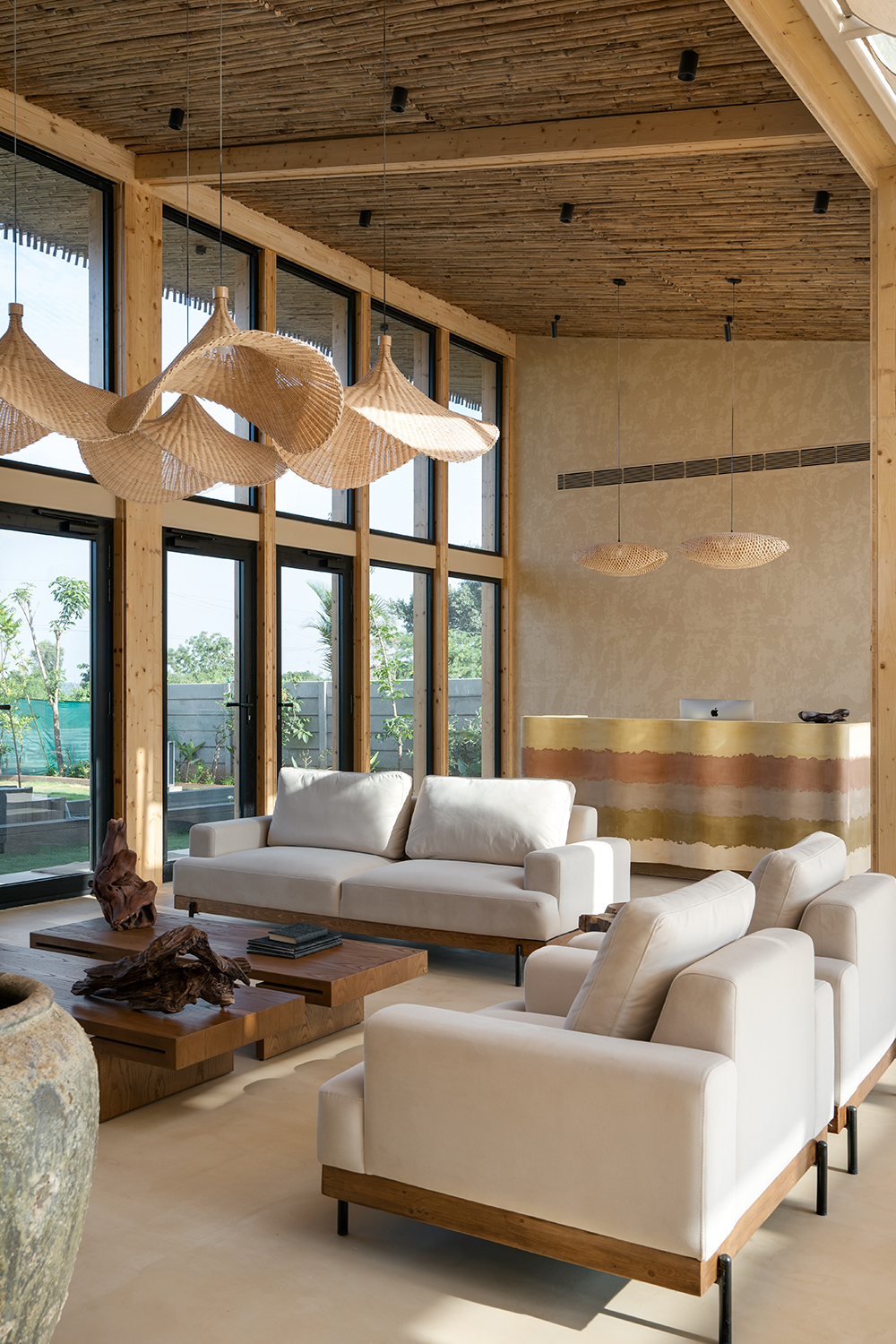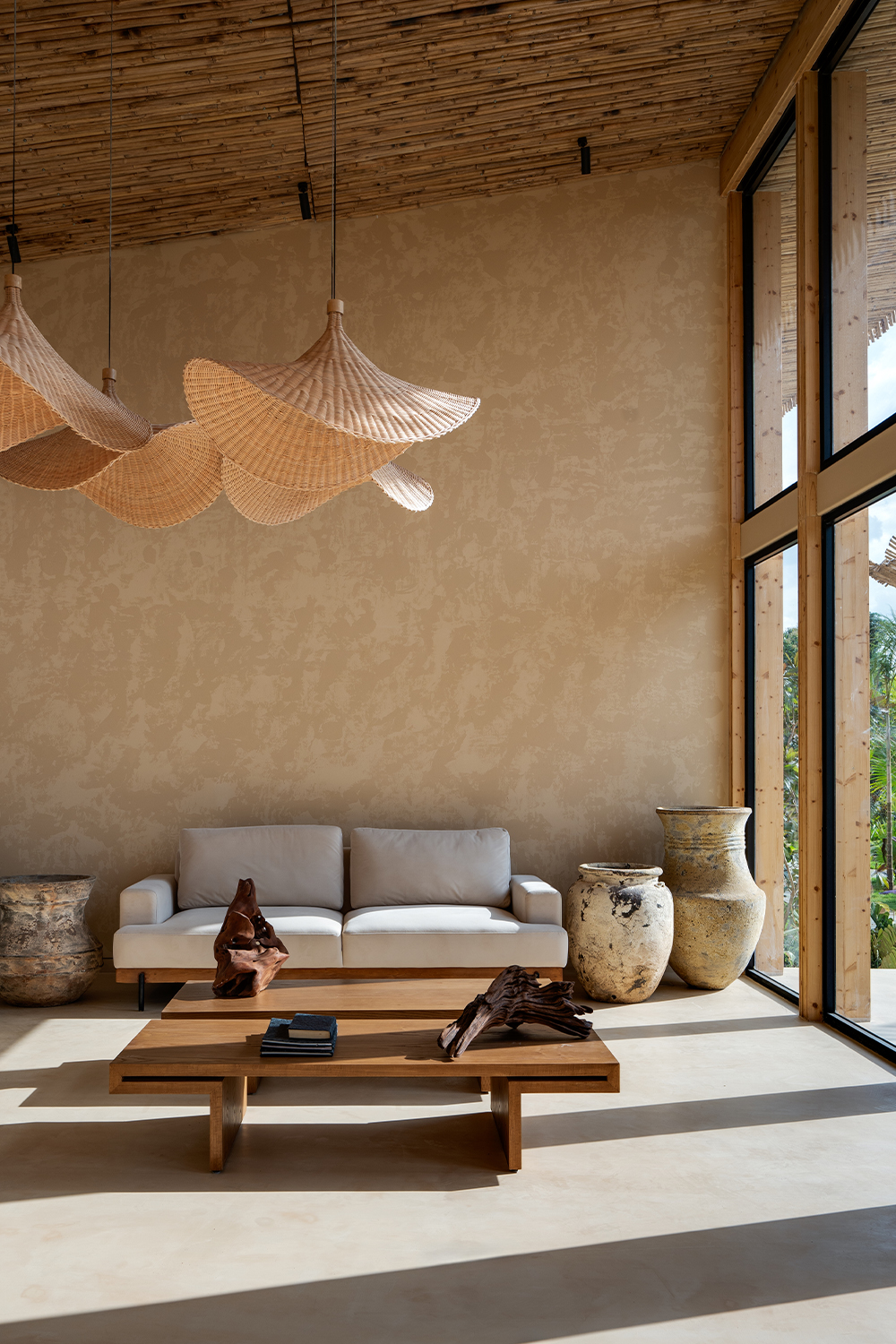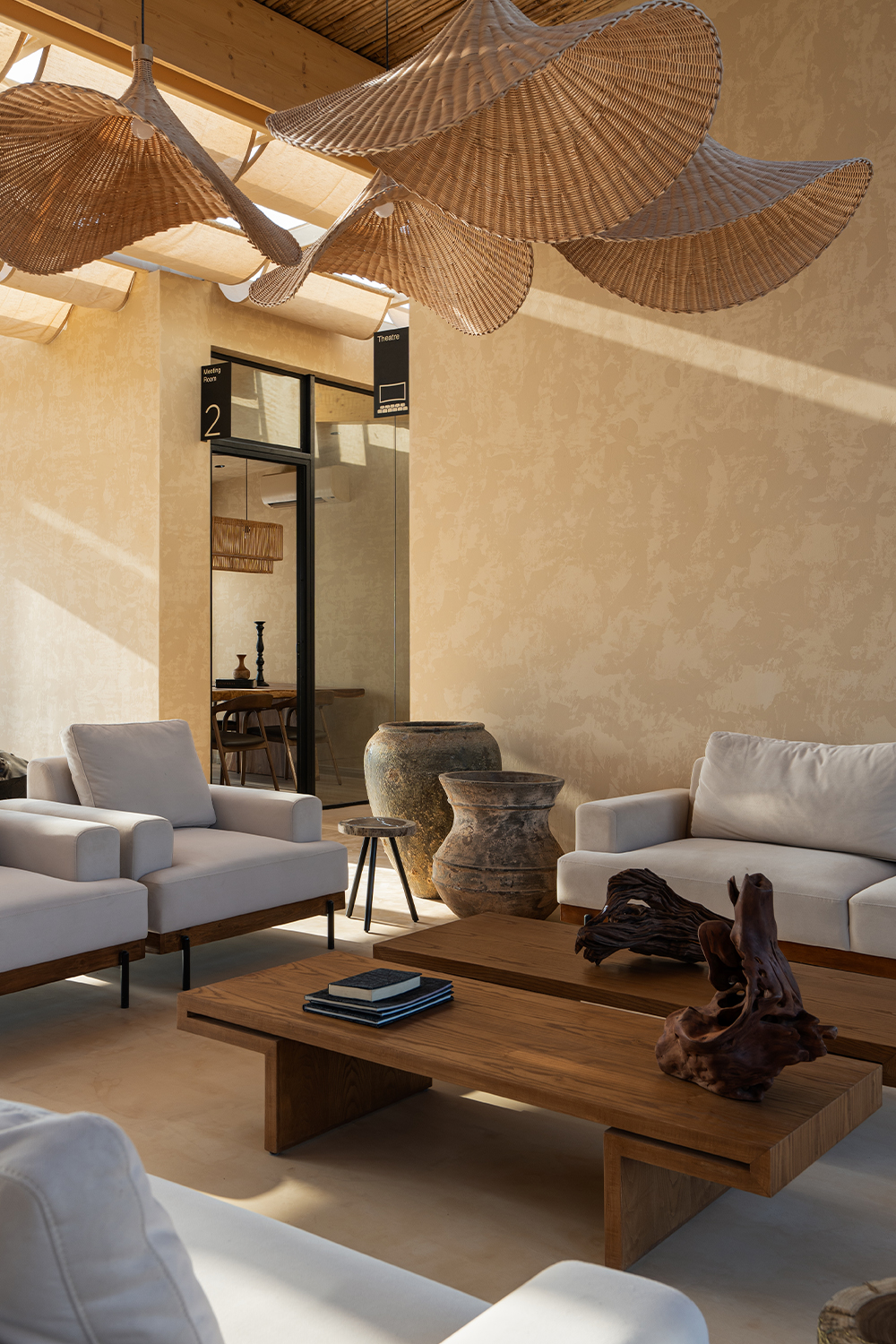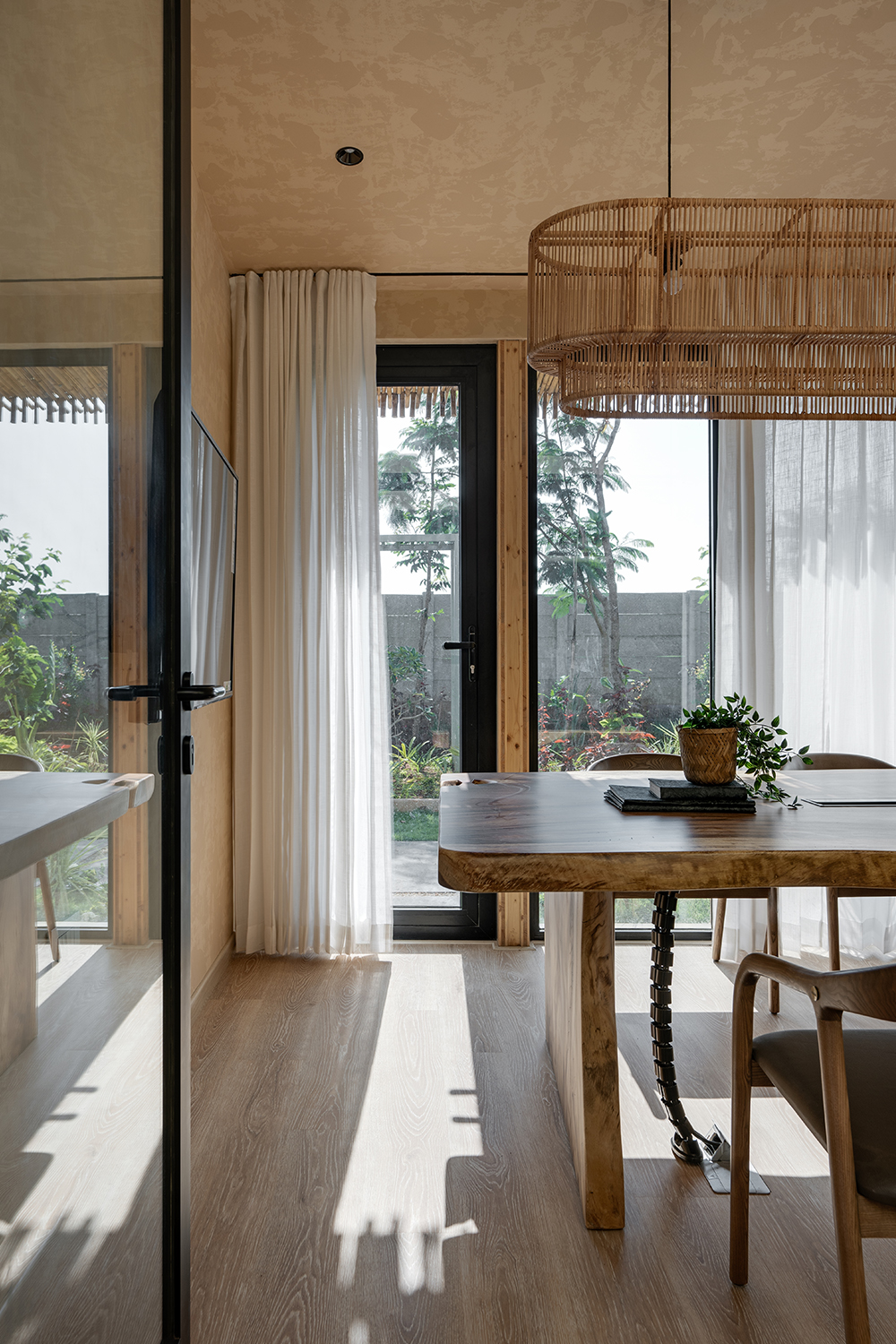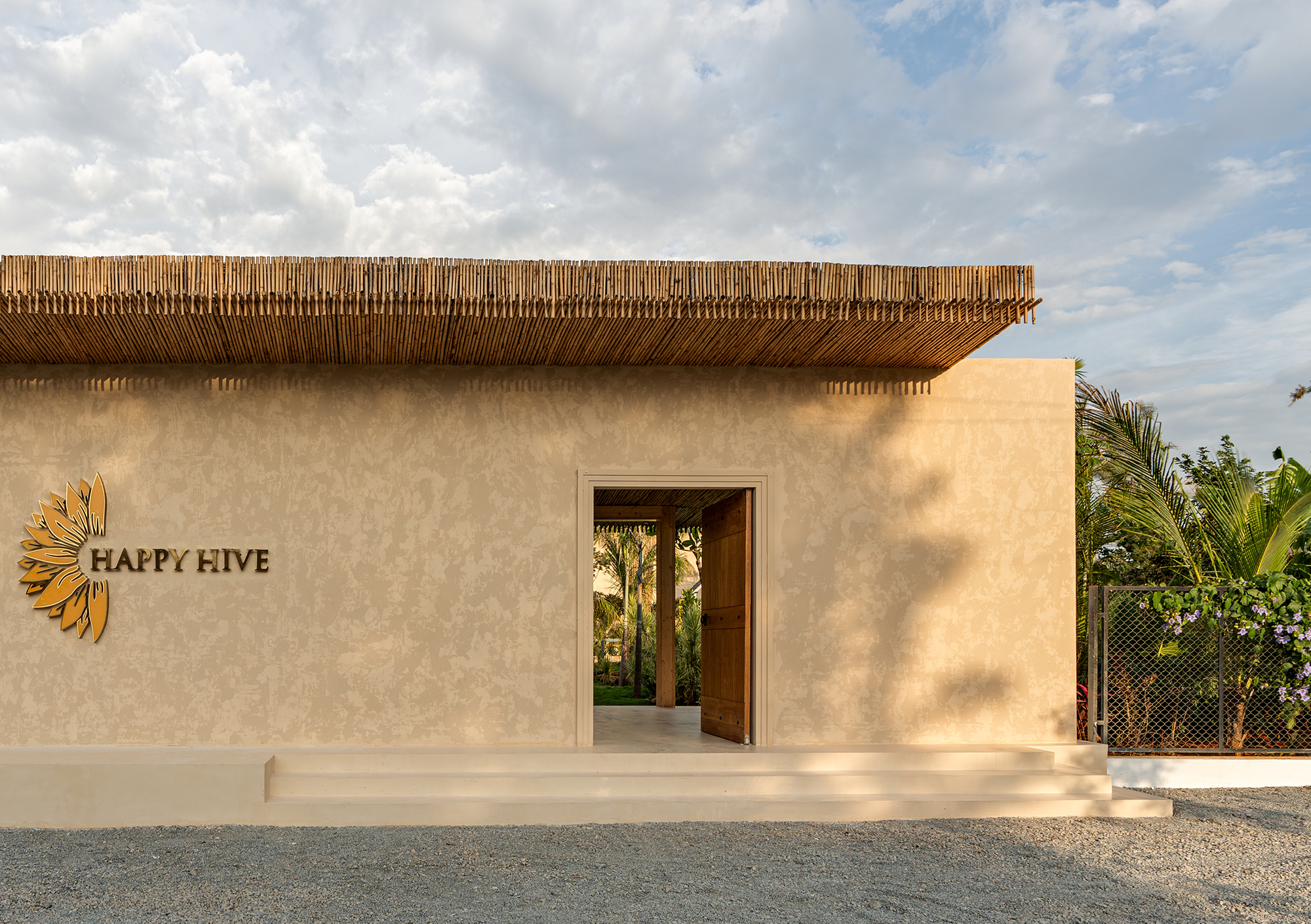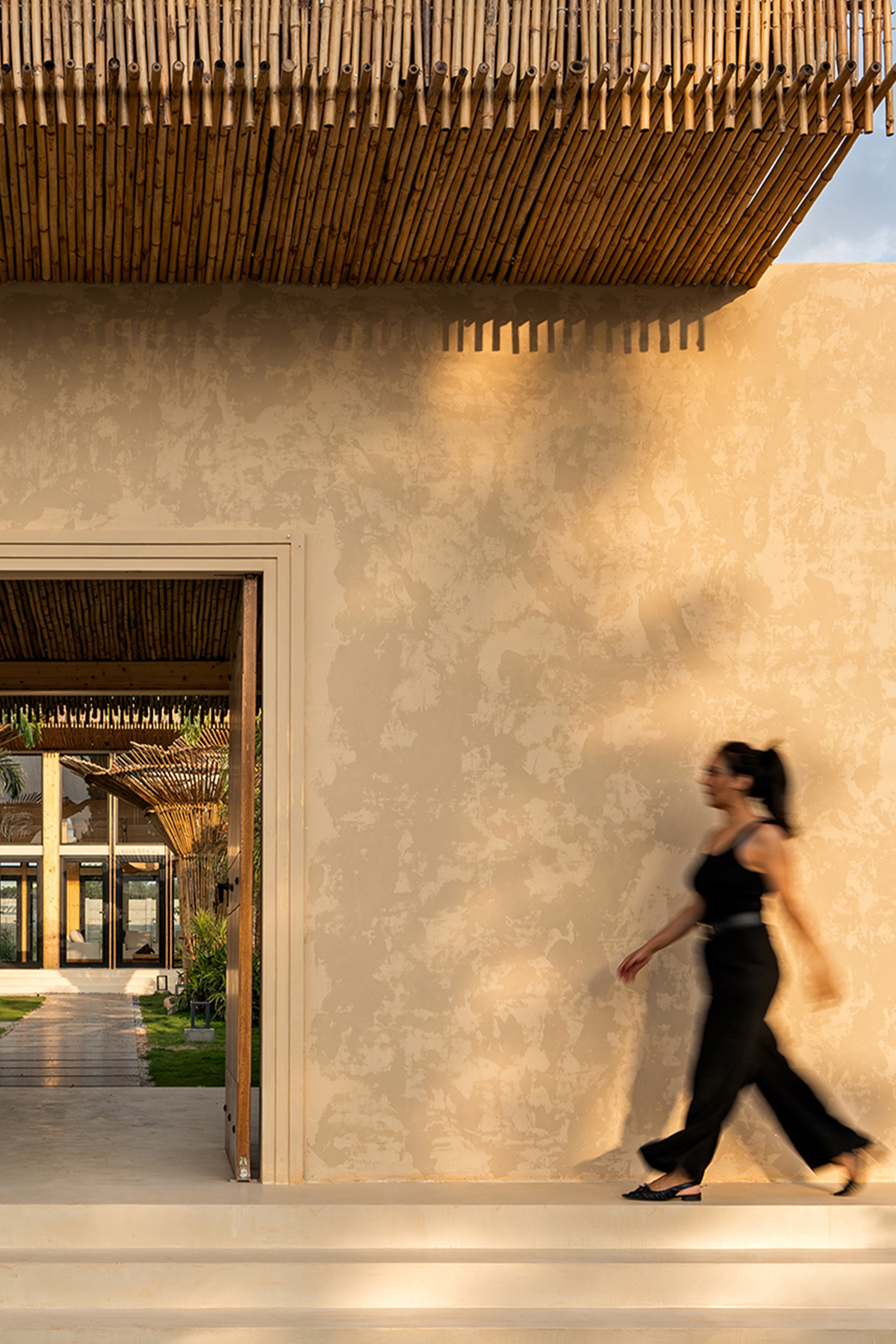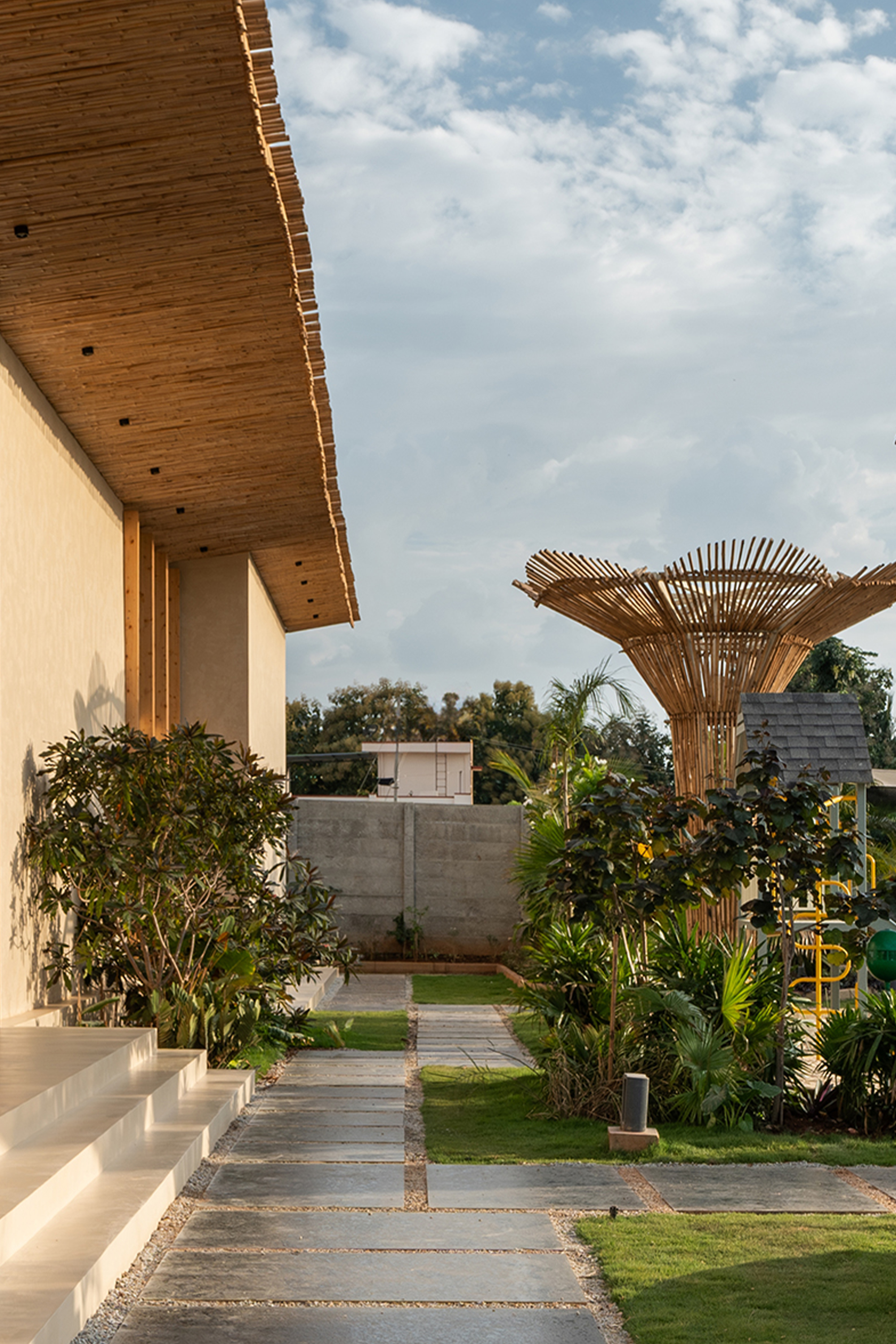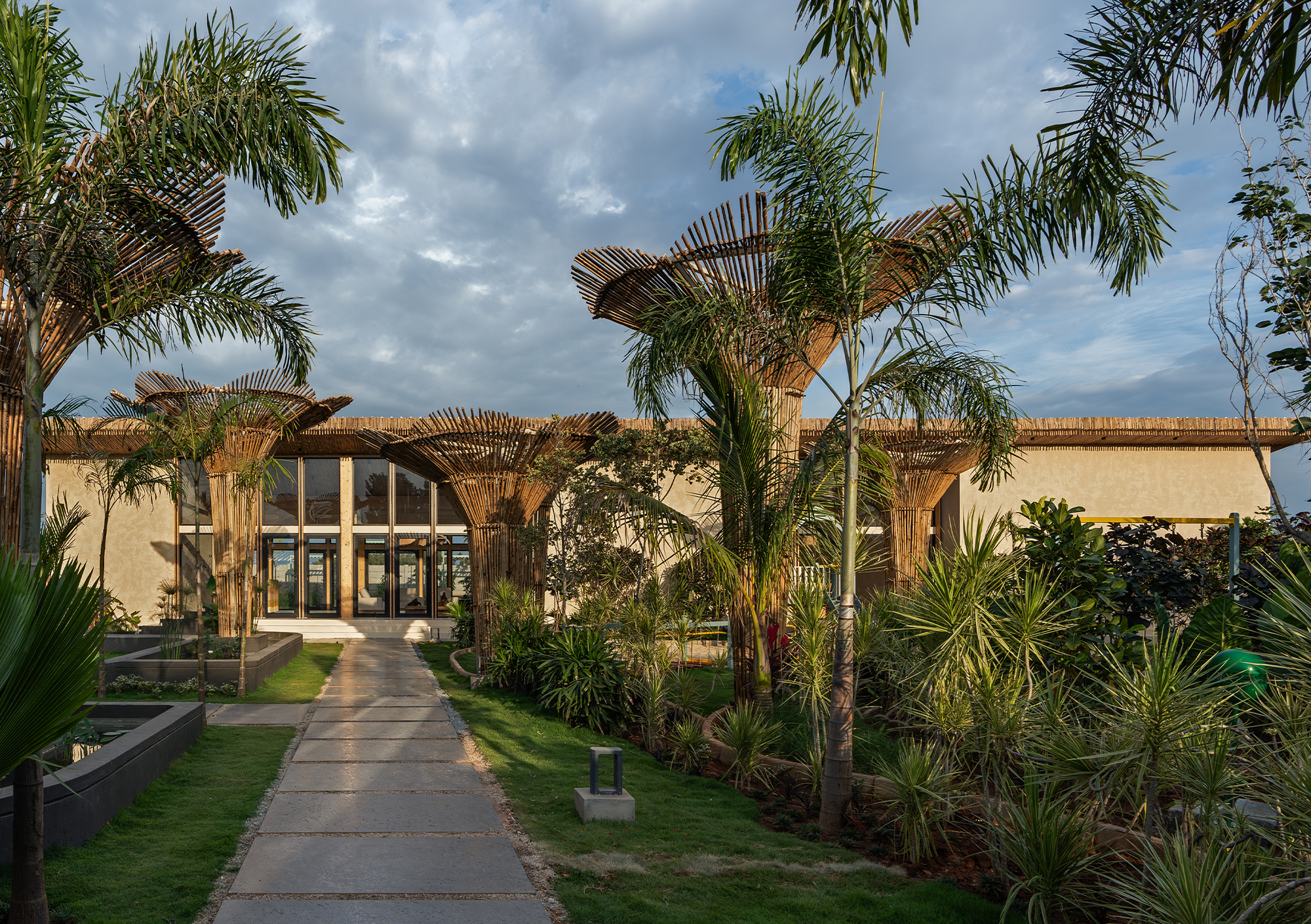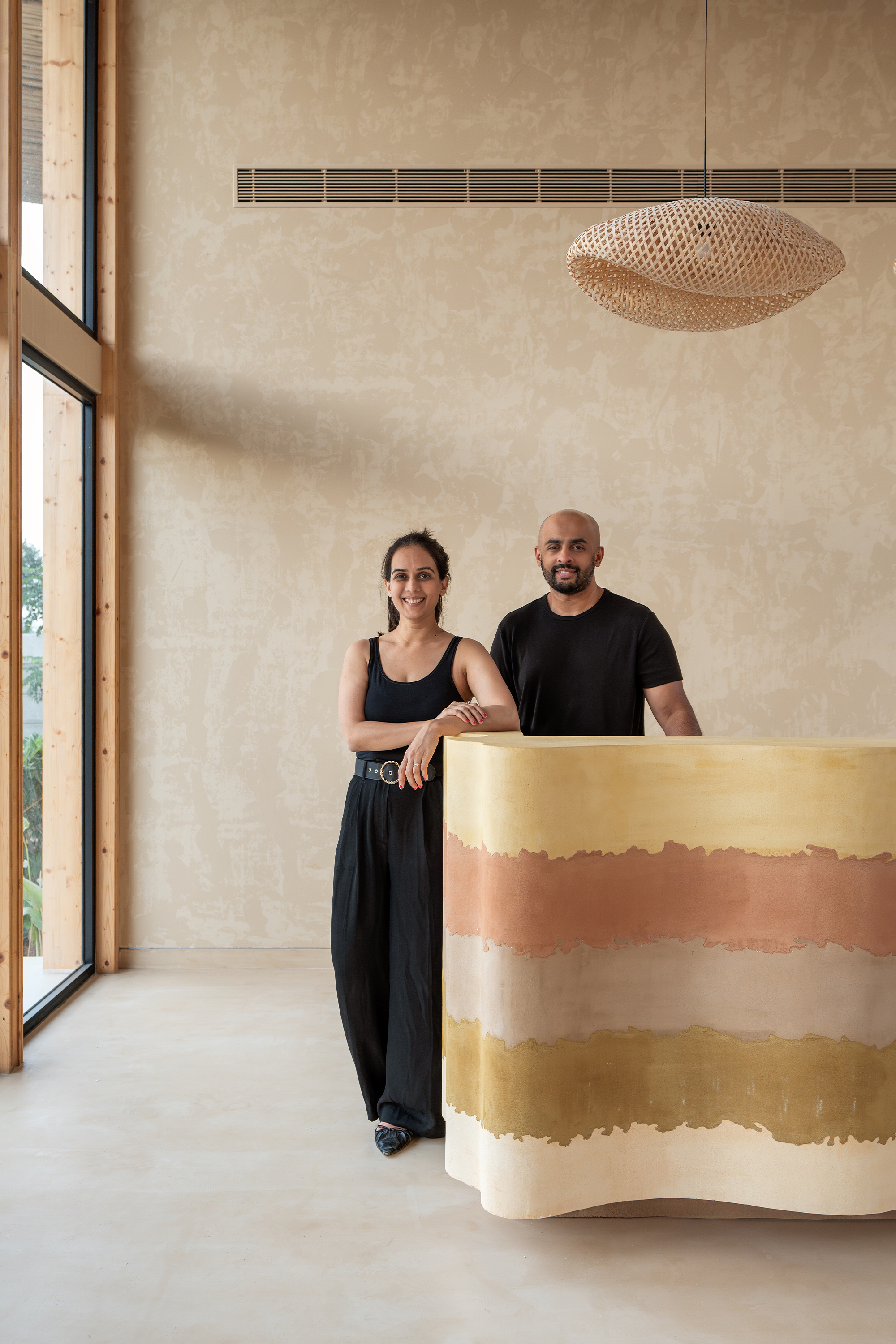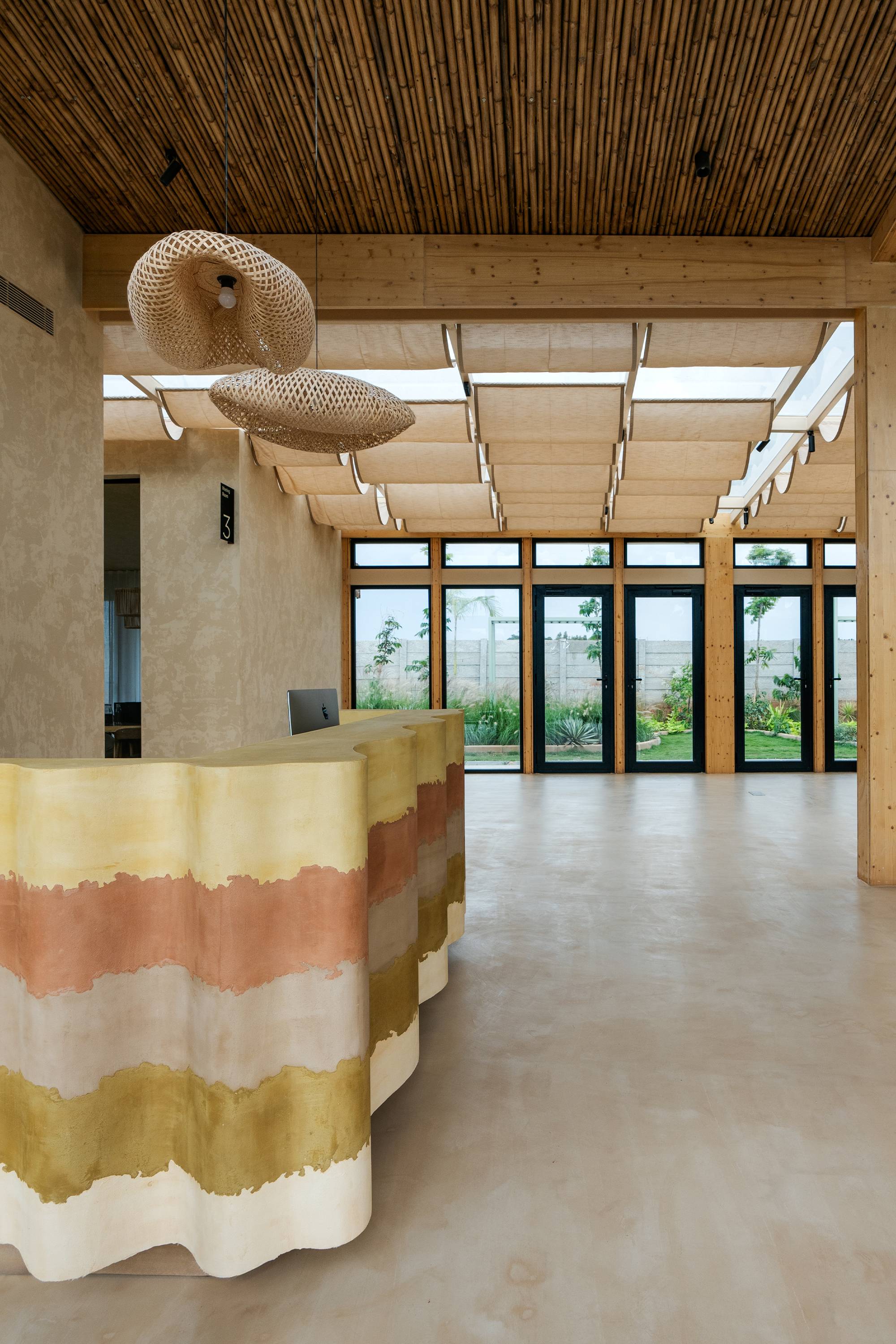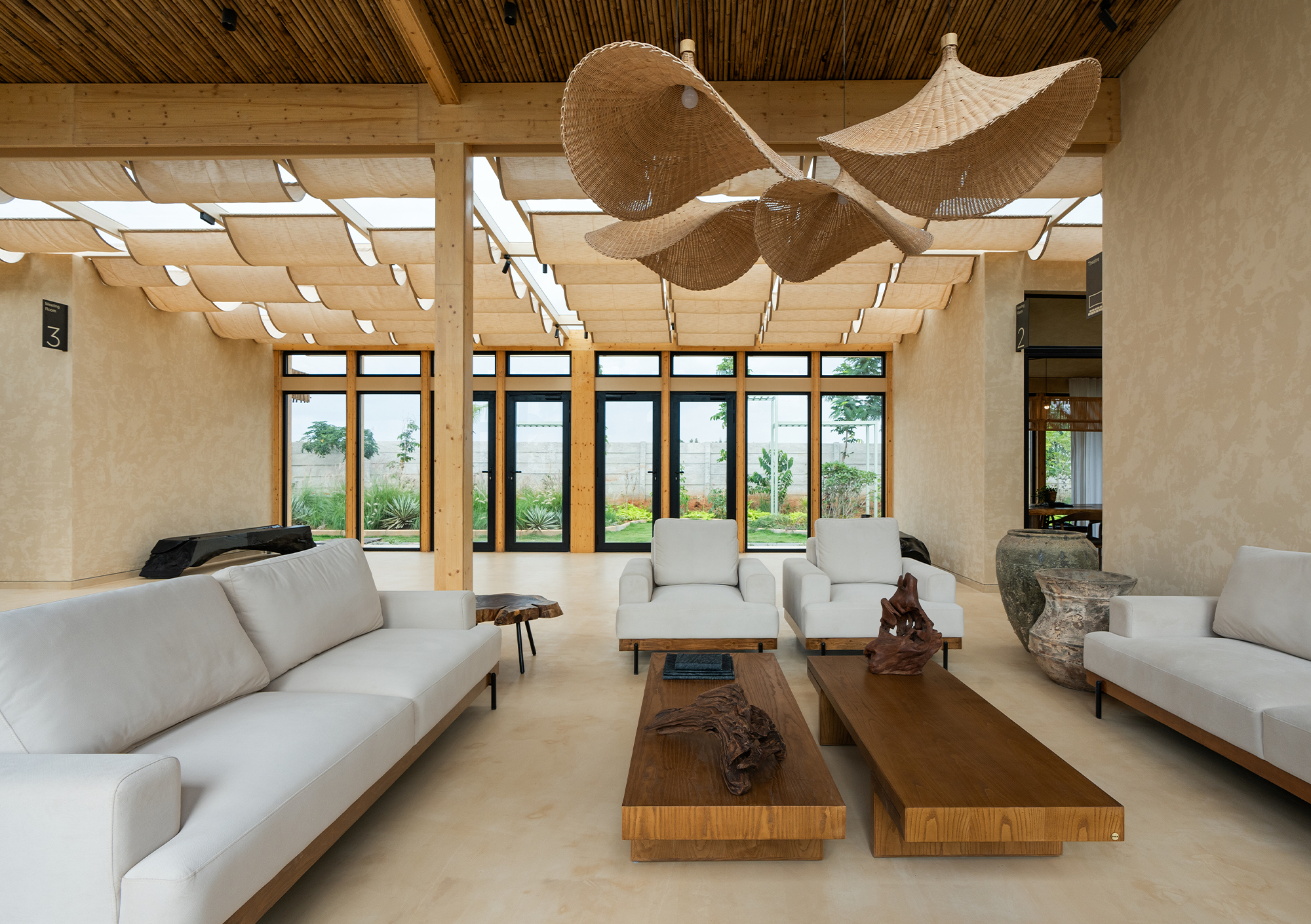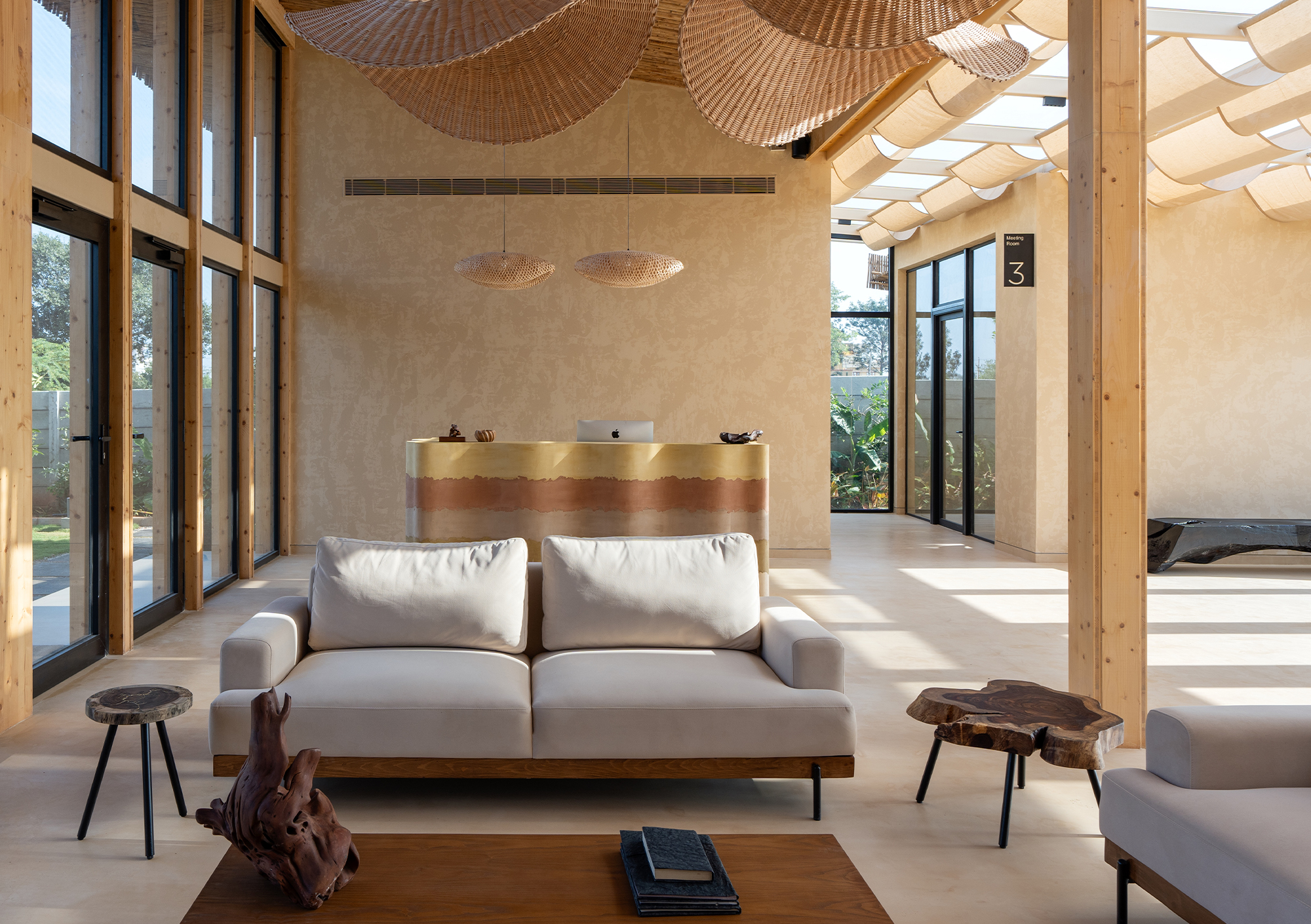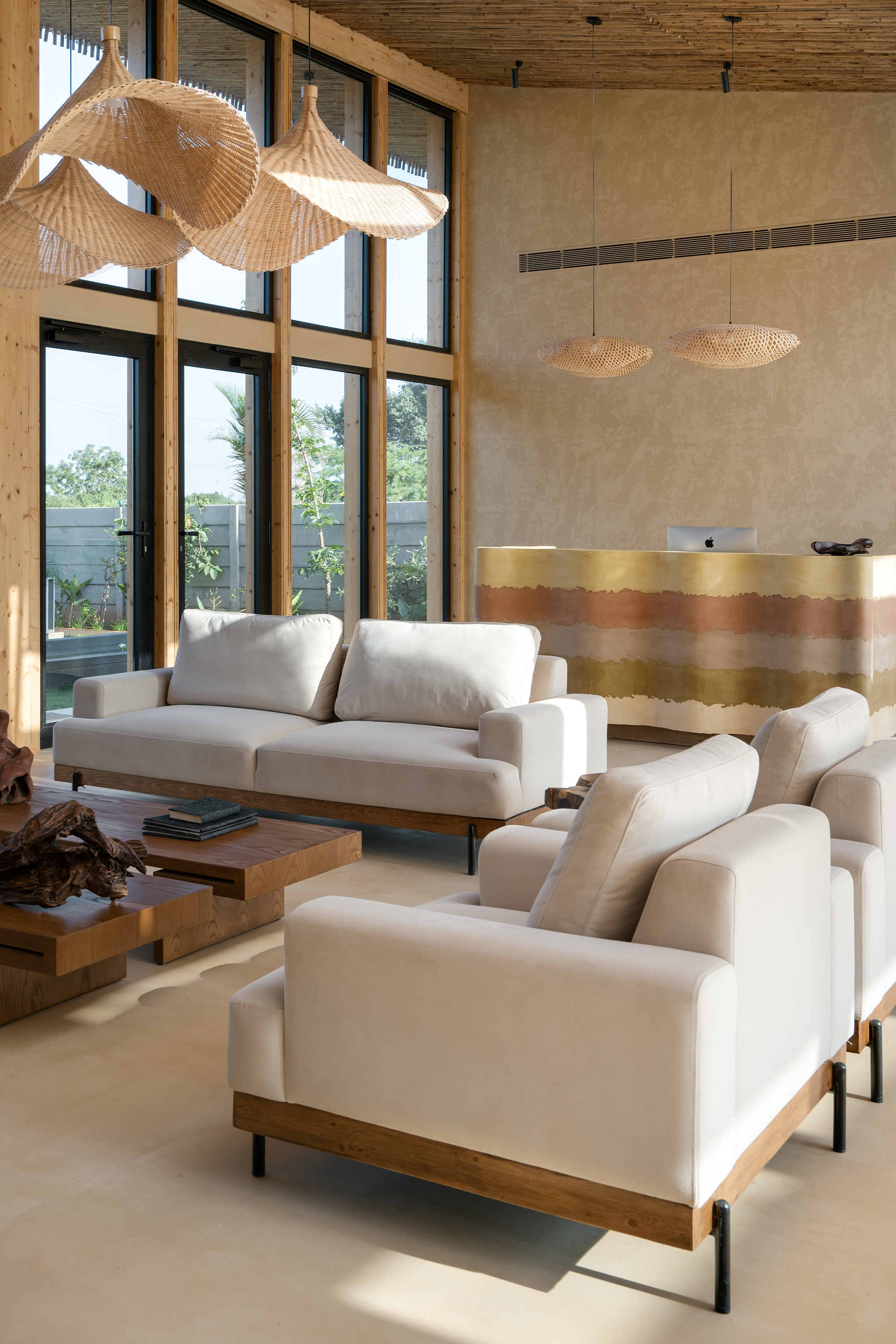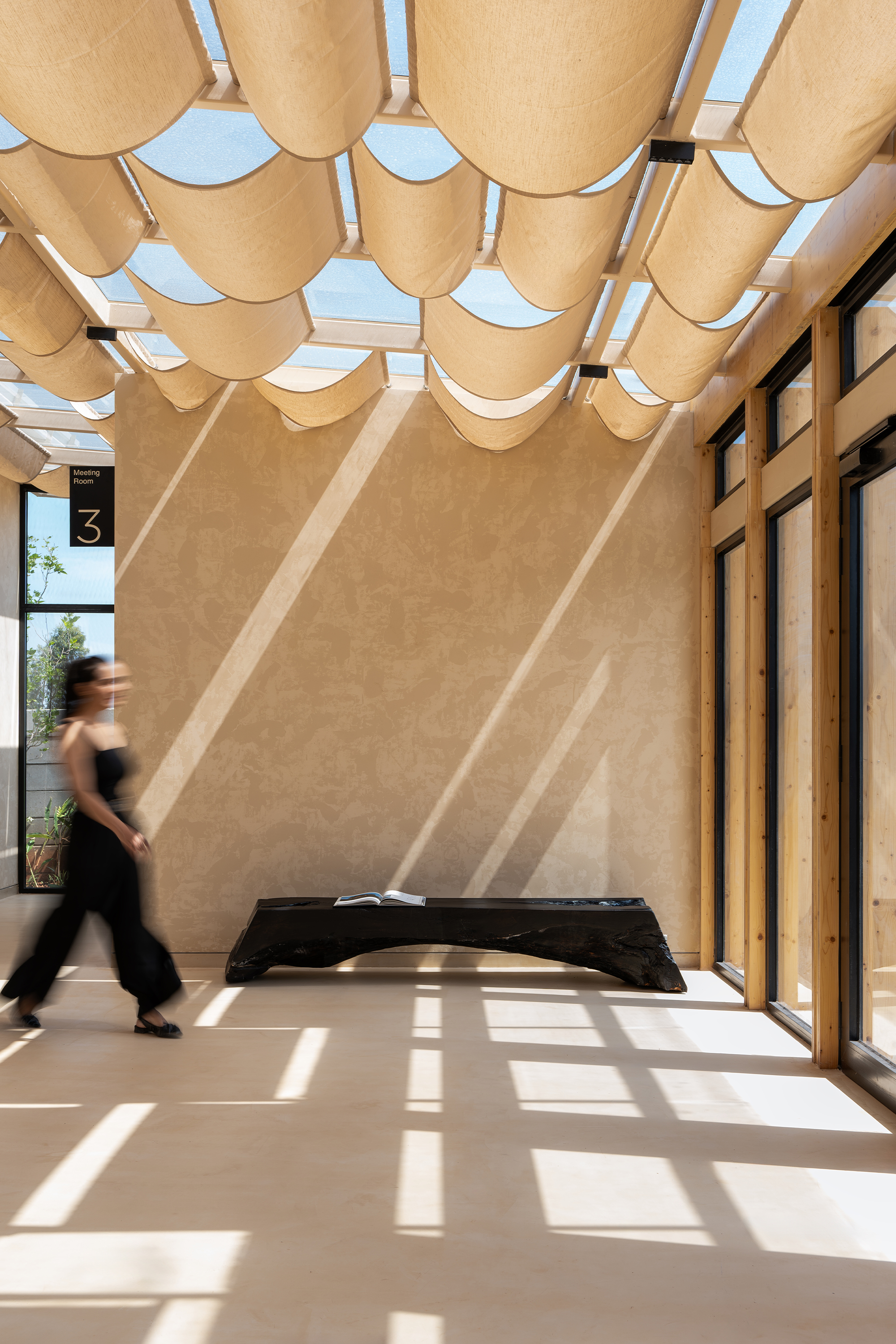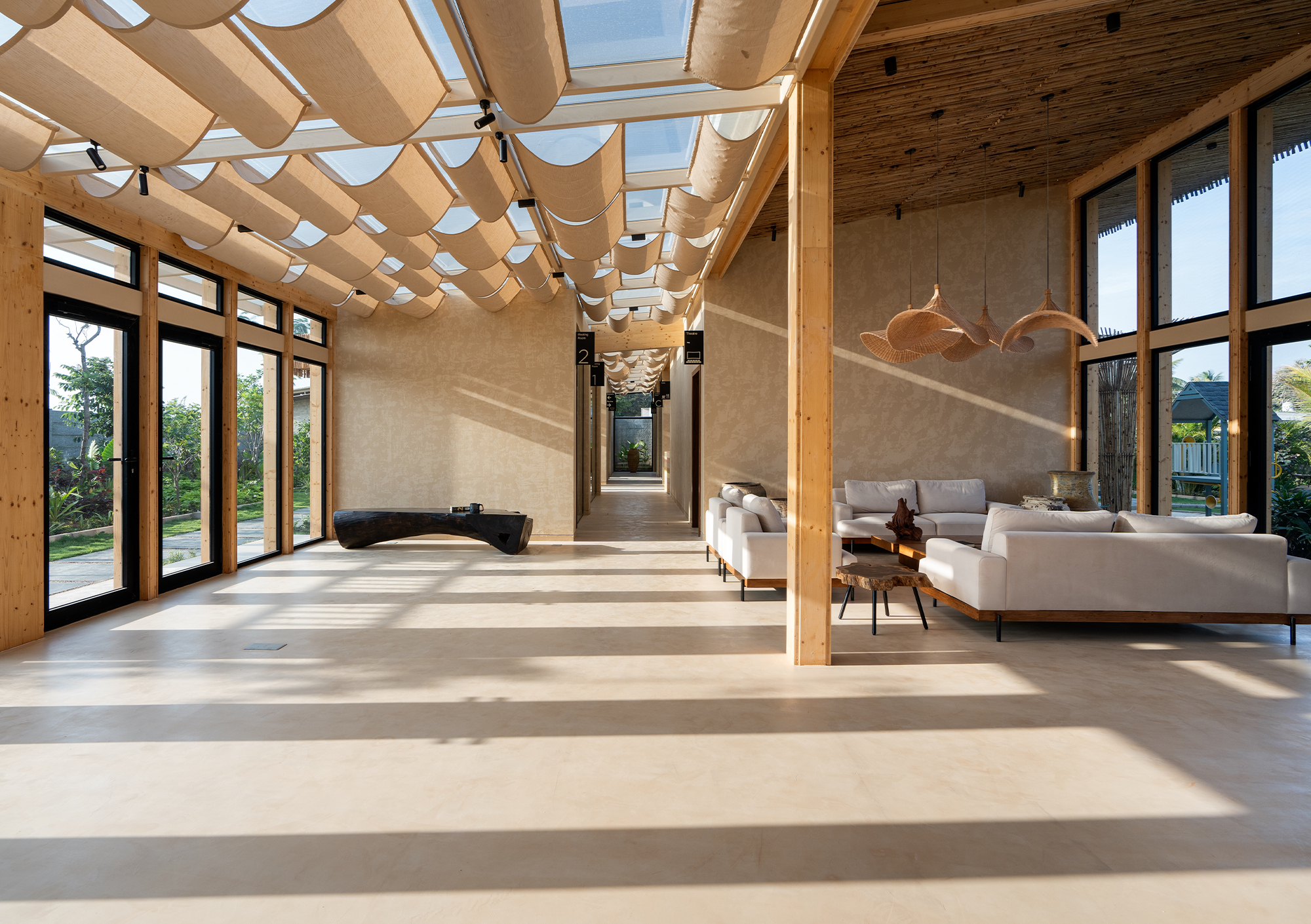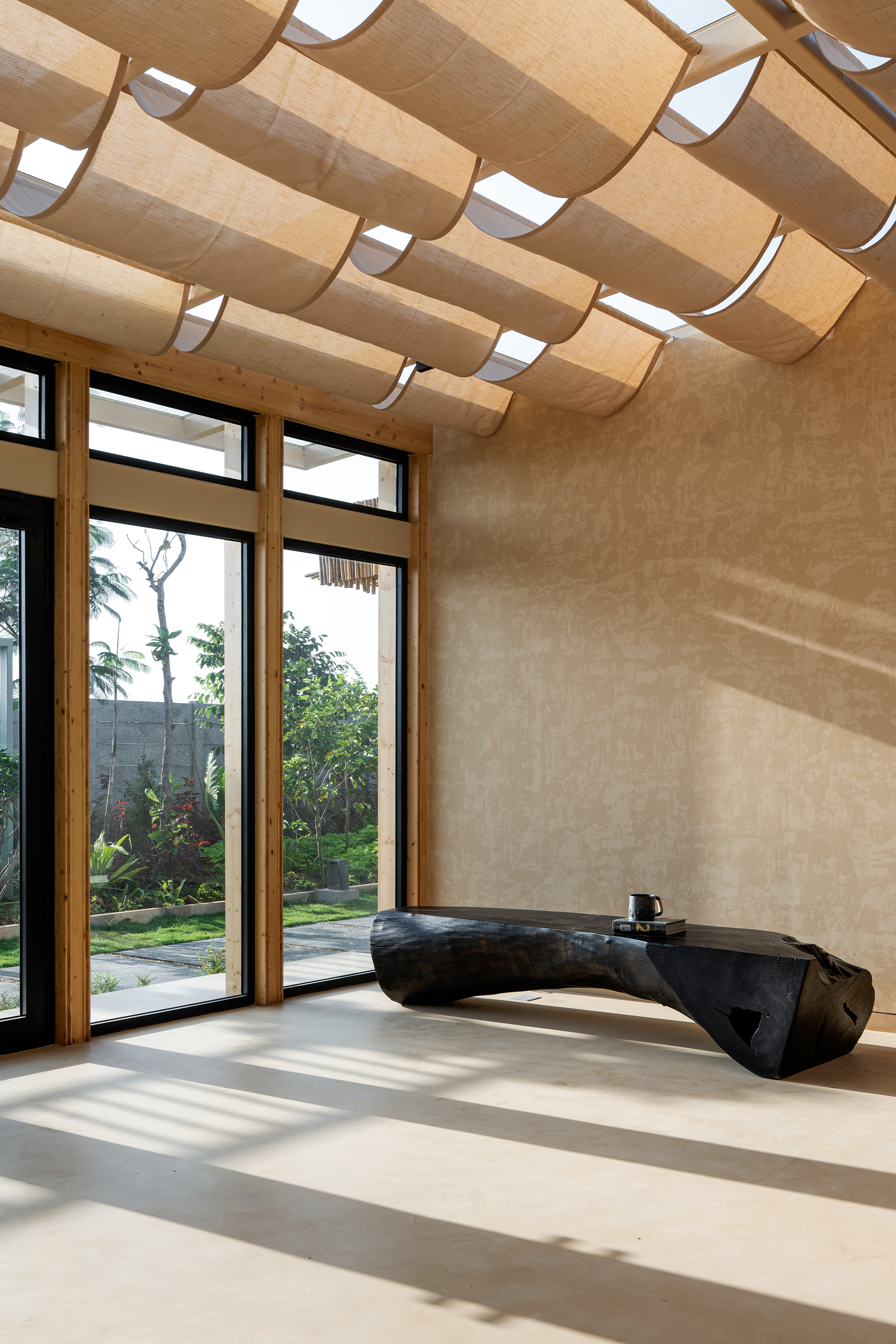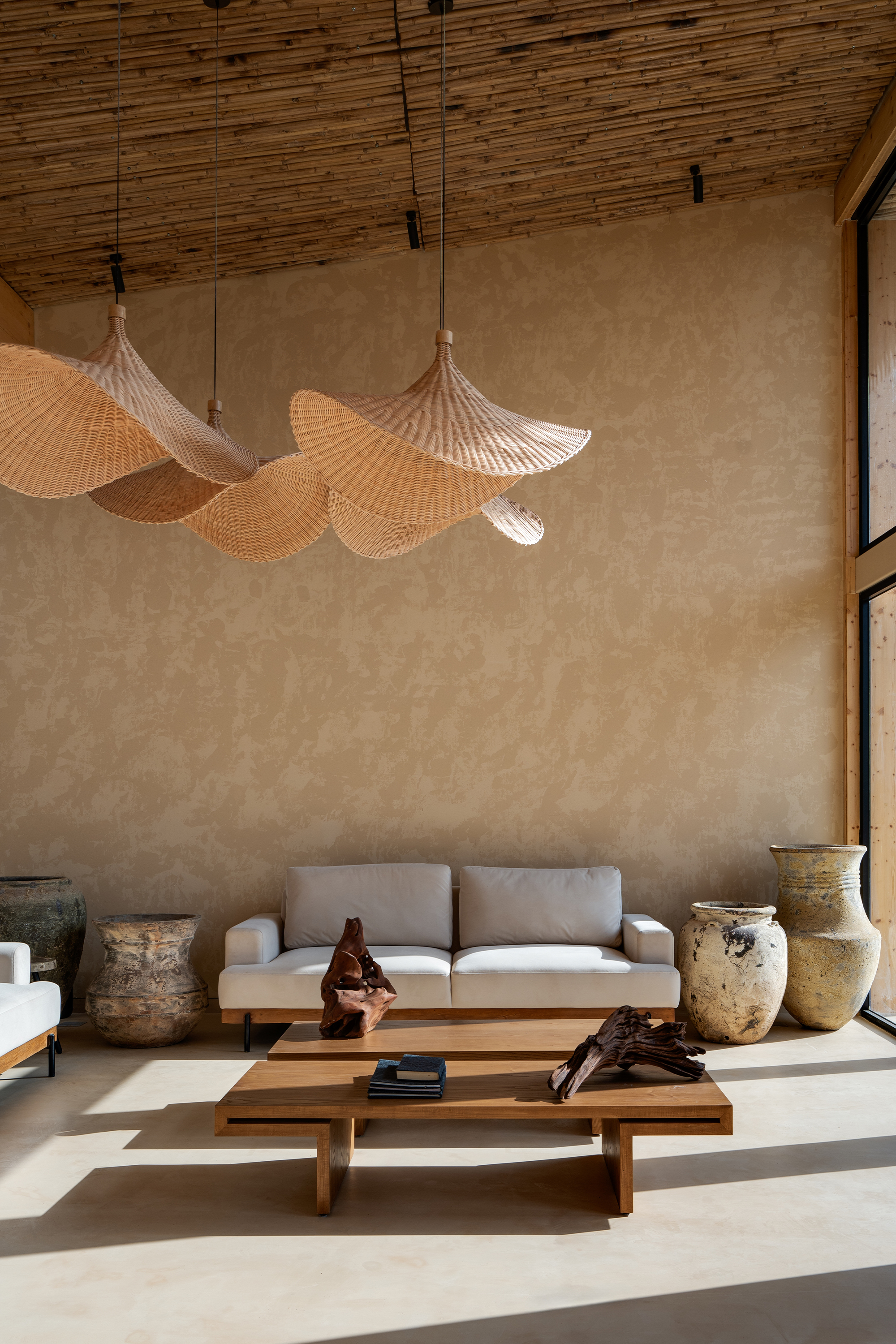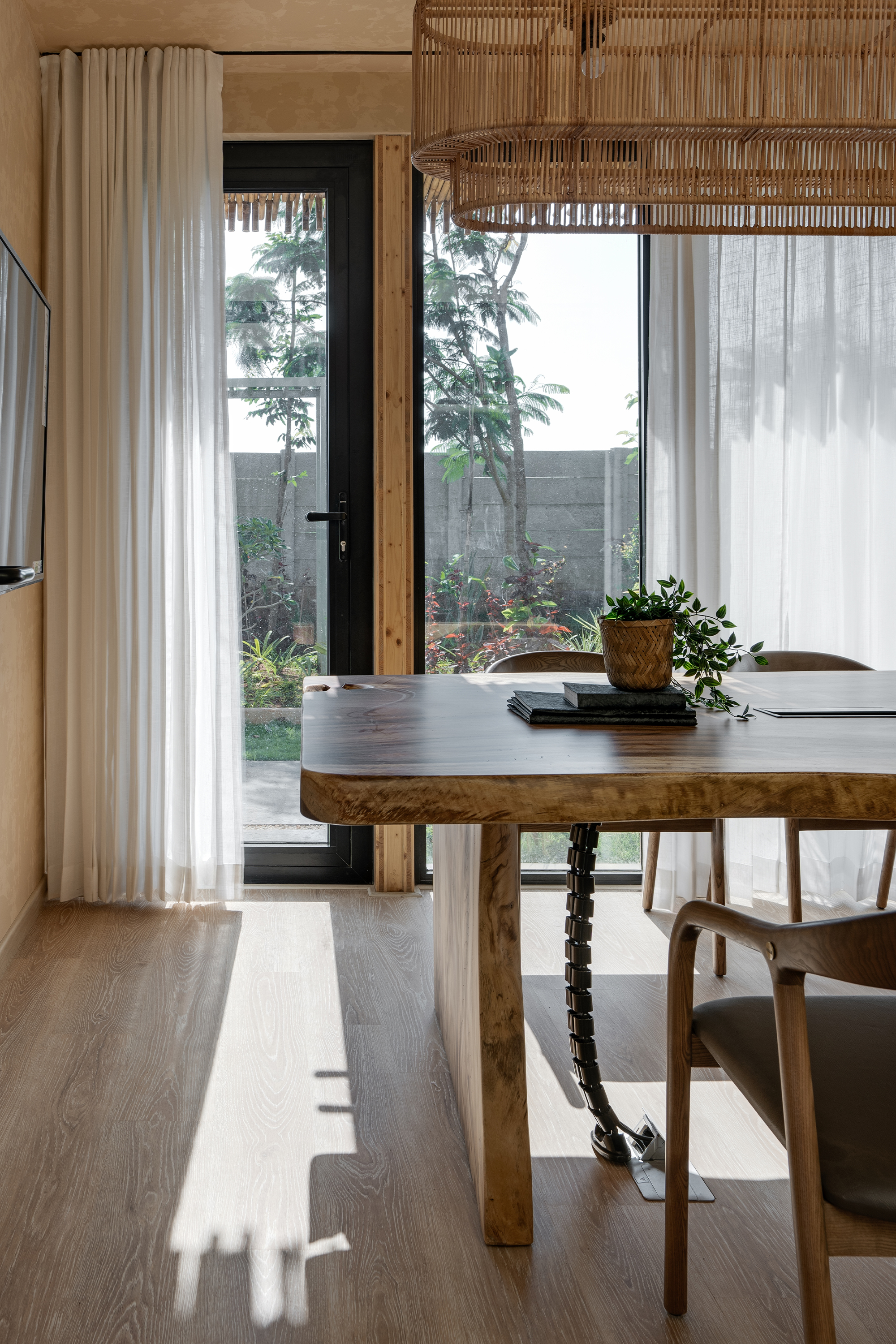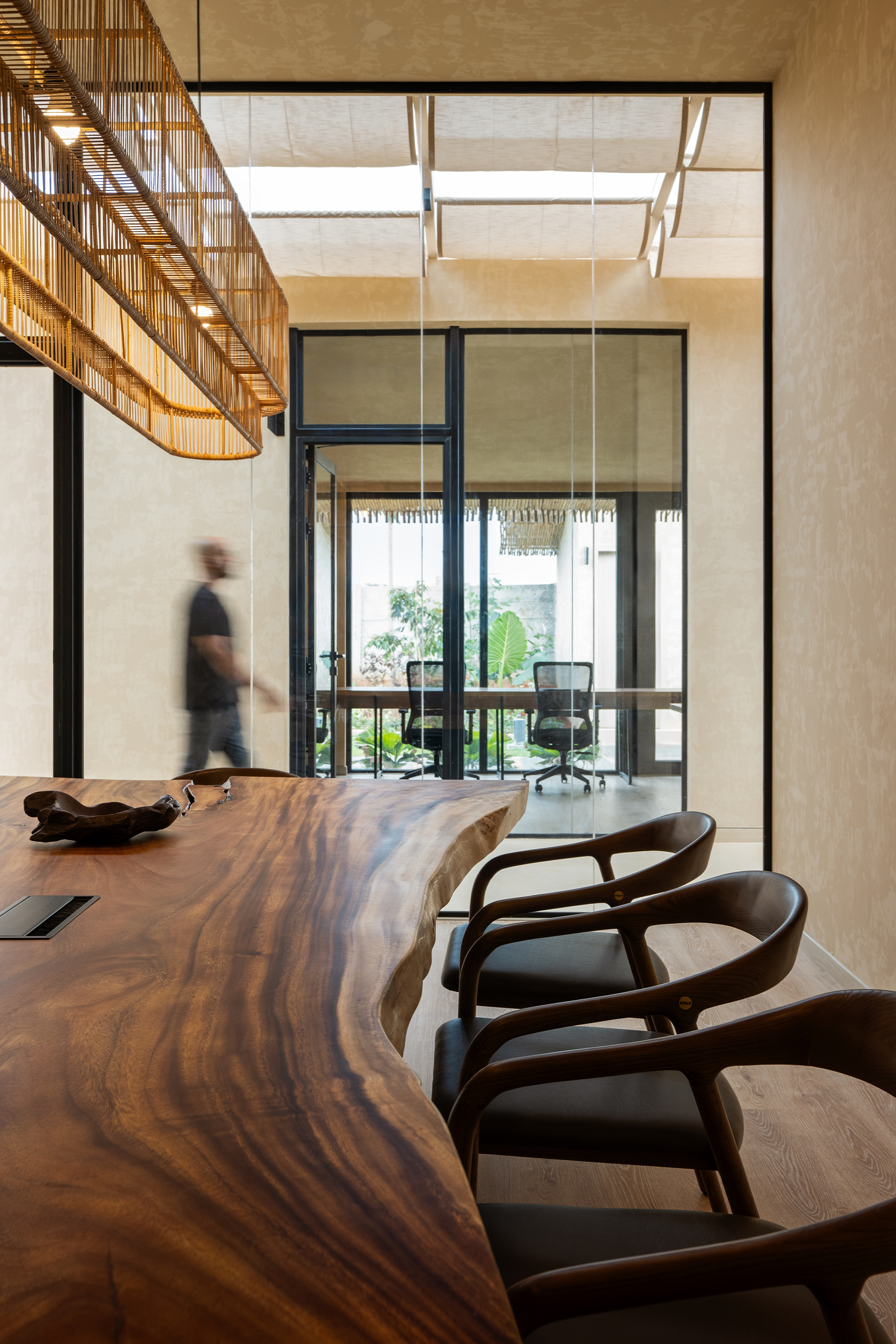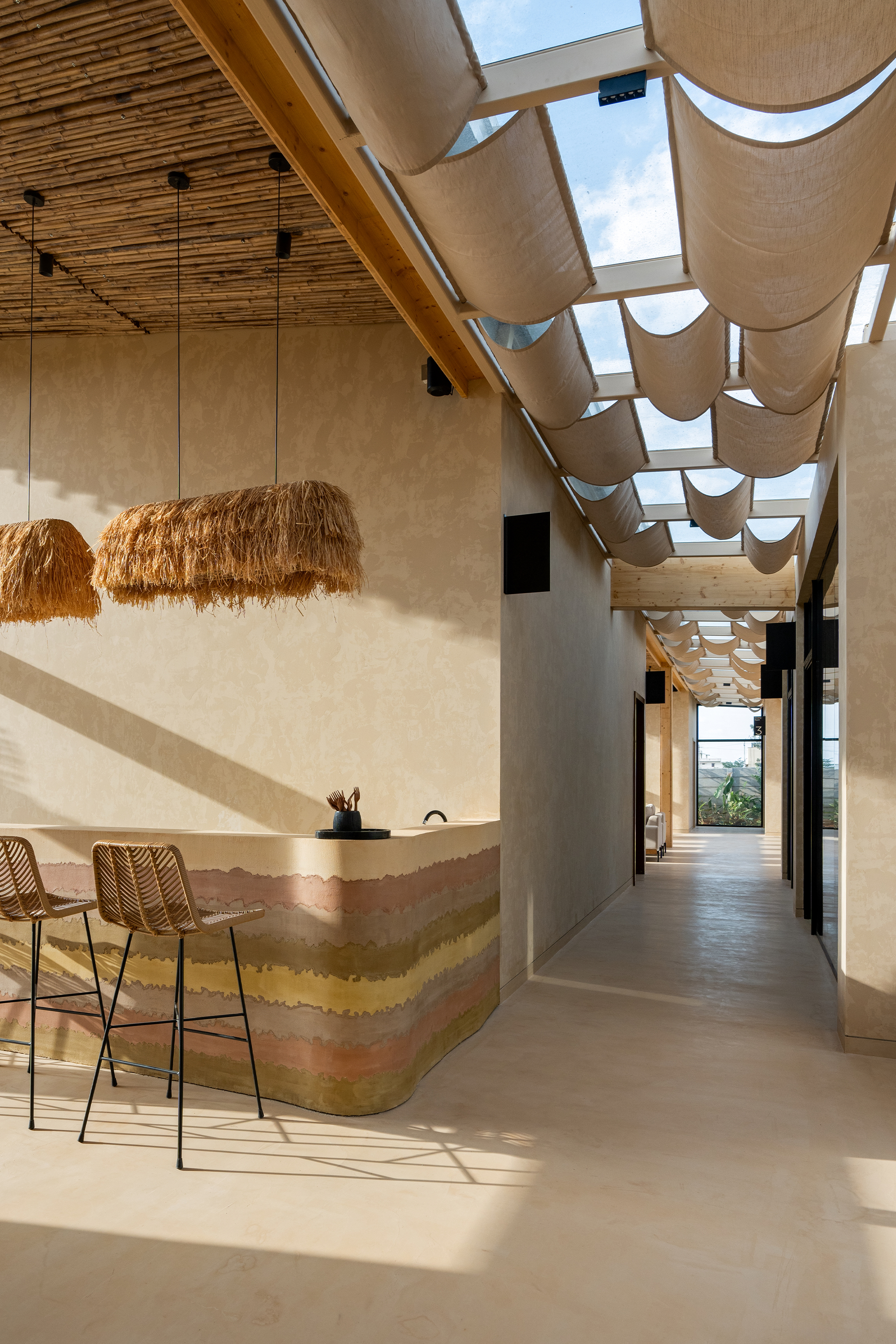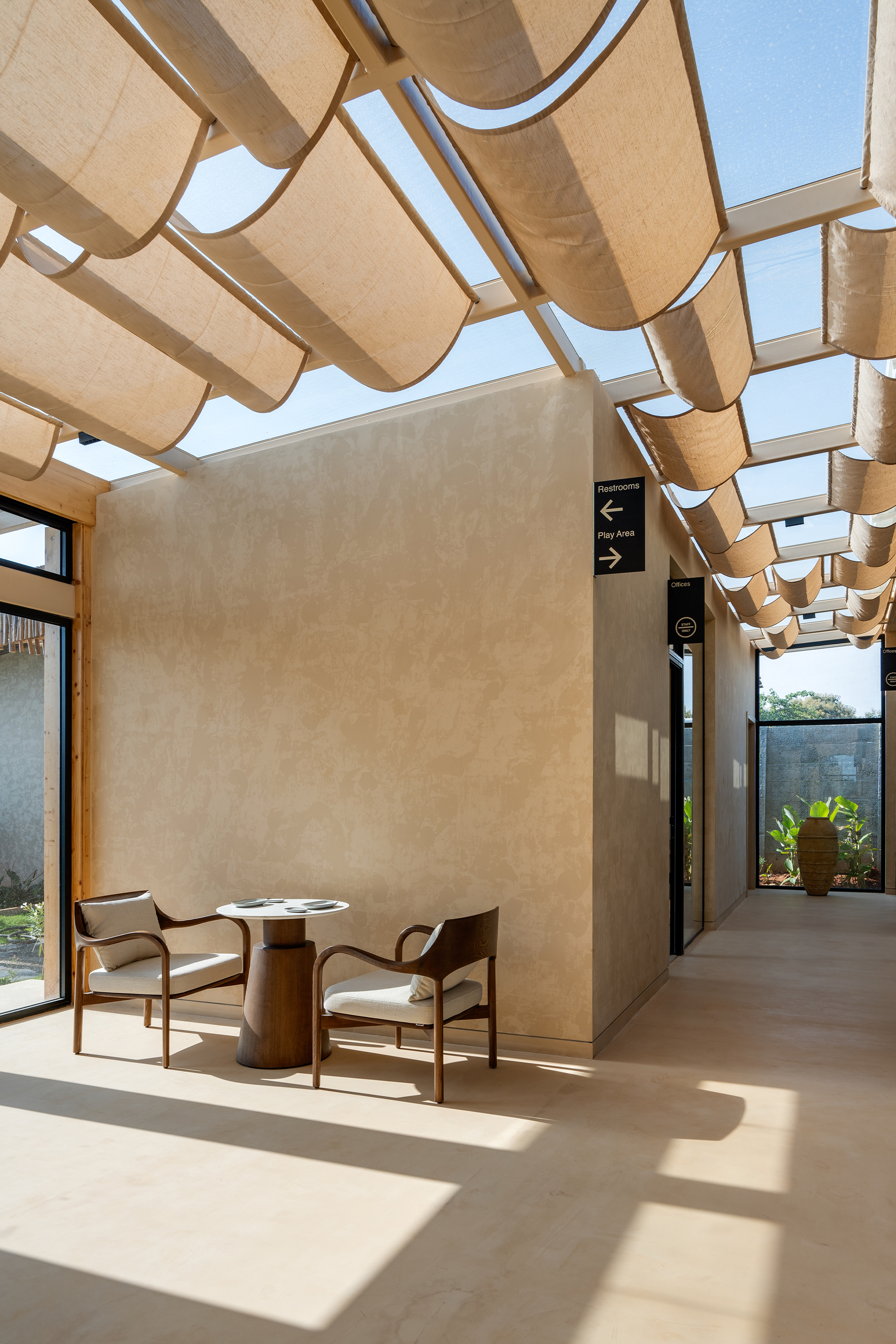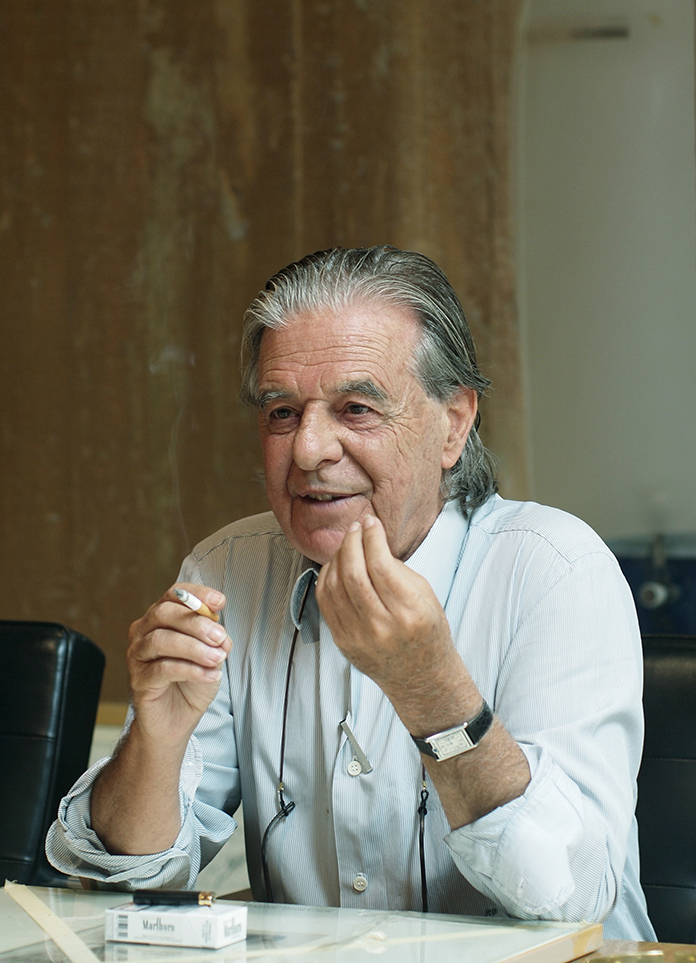In the heart of Bangalore’s expanding peripheries, amidst a landscape of dry earth and scattered industrial activity, Elements of Nature emerges not just as a marketing and sales office but as an orchestrated experience, an architectural dialogue between structure, materiality, and the senses. Designed by Sneha Ostawal, founder of Source Architecture, this 8,000 sq ft space is not a typical commercial showroom. It is a space that invites visitors to slow down, absorb, and feel—before they are even introduced to the idea of ownership
A large, uninterrupted beige wall marks the entrance, rising from the ground like a quiet monolith. It conceals as much as it reveals, prompting curiosity. A single wooden door punctuates its expanse, designed to be discovered rather than noticed from afar. The act of stepping through this threshold is a transition, the first step into a space that unfolds slowly, one layer at a time.
The reception is where the sensory experience begins. The air feels cooler, diffused light trickles in, and the textures underhand and underfoot are intentionally raw. A rammed-earth desk, sculpted with muted tones, stands unobtrusively in the space. Instead of conventional chairs, two large wooden logs rest nearby—not just as seating but as sculptural elements that change with the passage of sunlight.
These logs, worn yet tactile, anchor the space in a way that no polished furniture could. The bamboo-clad facade filters light throughout the day, casting patterns on the microcement floors, ensuring that no two moments inside feel quite the same.

